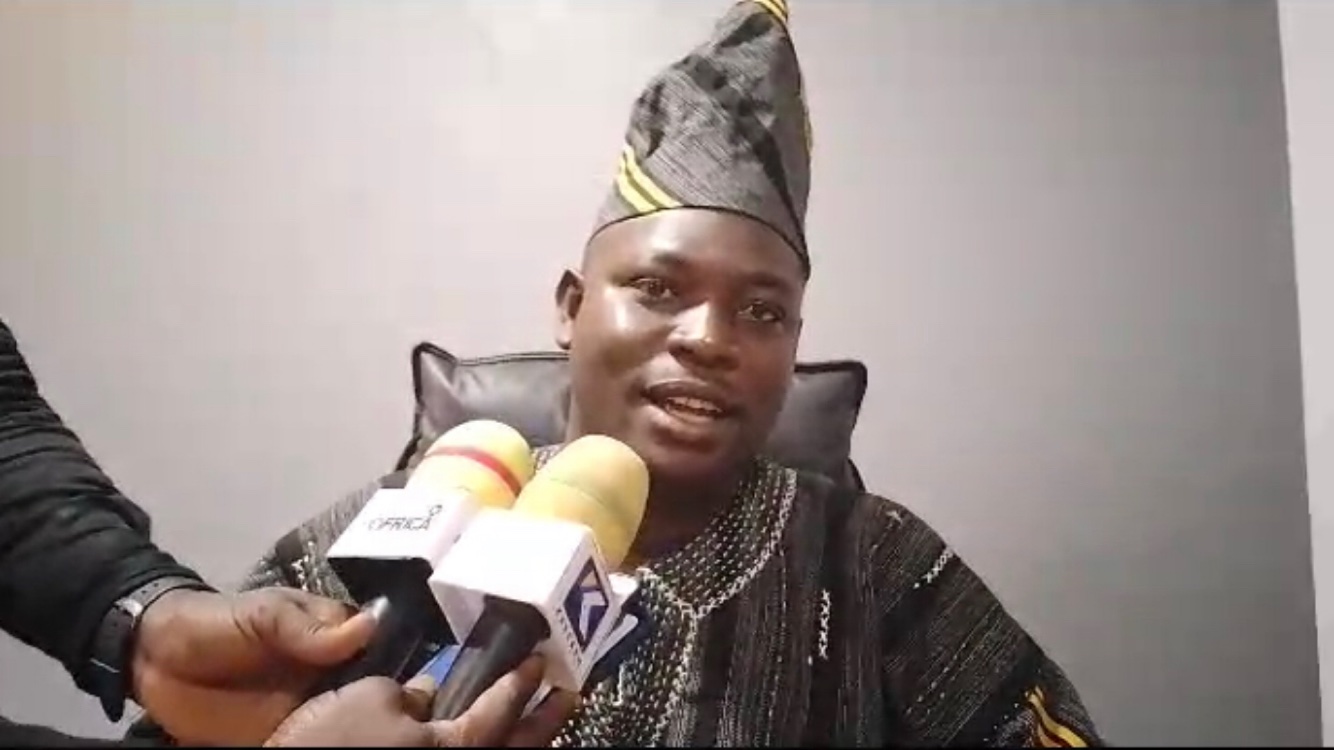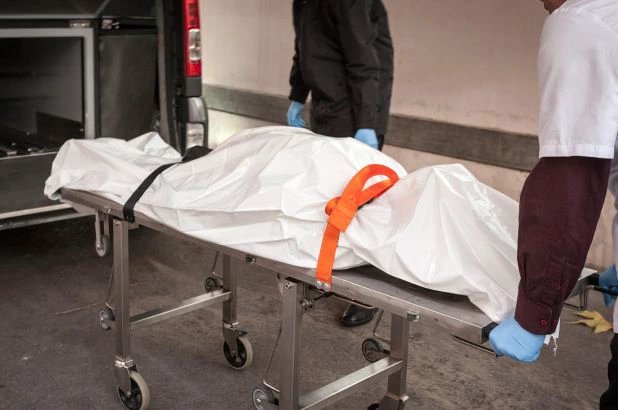Berekum East: Tain II Forest Reserve Under Siege, Farmlands destroyed by cattle invasion.
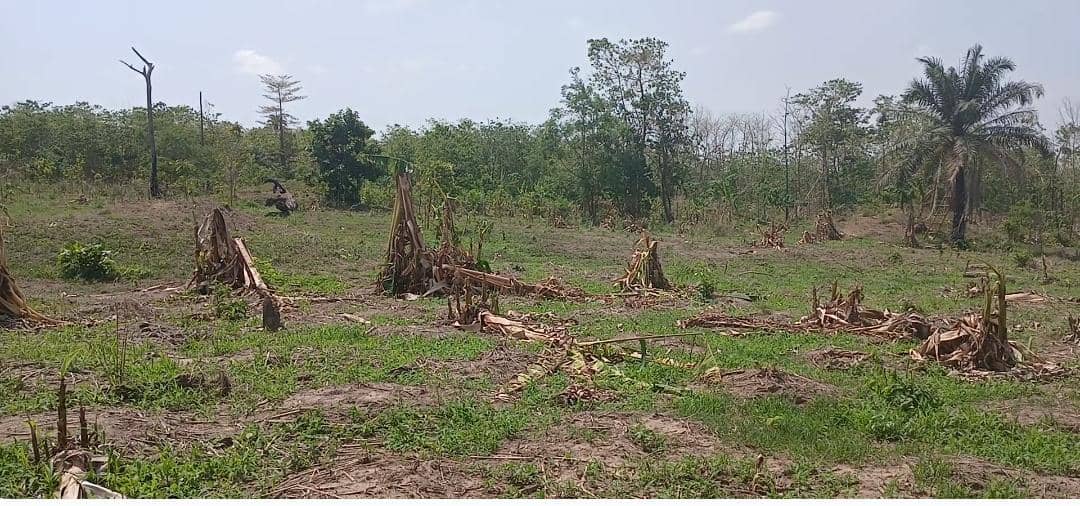
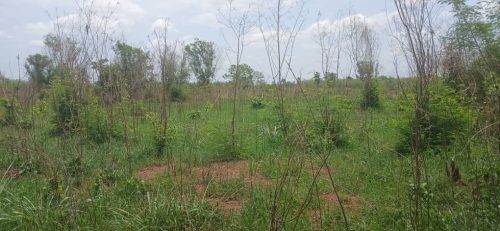
A vast portion of Tain II Forest Reserve, located along the Berekum Namasua to Tain highway in the Bono Region, faces serious threats from Fulani herdsmen activities.
Their cattle grazing has significantly degraded thousands of acres, depleting the forest reserve into complete desert.
The reserve is under siege as Fulani herdsmen deliberately set fires to produce fresh fodder, burning millions of commercial trees, including mature teaks.
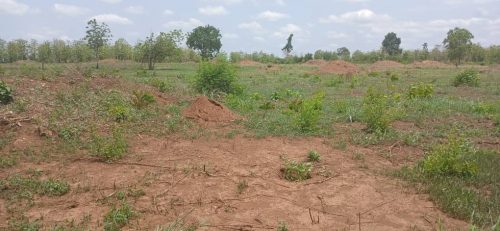
The herdsmen have built several cattle ranches within the Tain II Forest Reserve to provide proxy access to food for their animals.
During an interaction with peasant farmers at Namasua, majority of them blamed some police personnel in Berekum East and the Forestry Commission for their failure to clamp down the menace.
The farmers alleged that these authorities may have been compromised.
According to the farmers, instead of the police arresting the Fulani herdsmen, they (farmers) themselves become victims and get arrested when they report cases to the police in Berekum.
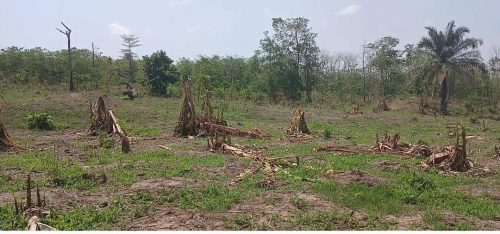
“The police in Berekum even tell us to arrest the Fulanis or their cattle and bring them ourselves,” one of the farmers said.
While calling on government, through the Bono Regional minister and Forestry Commission for interventions to address the situation, the community contend that they should take back their land if the Forestry Commission cannot manage the forest reserve, so that they can find their own means to protect it.
Destruction of farmlands.
A recent visit by Kaakyire Kwasi Afari and Patrick Ansu of Sunyani-based Ark FM revealed a dire situation, with peasant farms destroyed, directly affecting the livelihoods of indigenous people who rely solely on the forest for their daily bread.
The community informed us that they had agreed to let the Forestry Commission manage their land in exchange for being allowed to cultivate it and plant commercial trees.
However, the invasion of Fulani herdsmen has taken control of the forest, amid constant threat to harm with their sword if the community attempt to prevent their activities.
Furthermore, the presence of the nomads and their cattle has compromised the peace and security of the area, leaving many farmers without livelihoods as their farms and properties are destroyed.
According to the farmers, despite numerous attempts to chase them away, the herdsmen have ignored the community’s pleas, making life unbearable for the residents.
The queen mother of Namasua community, Nana Adwoa Owusuaa, told us that some young farmers who can not endure the devastating effects have migrated to Berekum and Sunyani for greener lives.
A local farmer revealed that most cattle owners are from nearby communities, including Techiman and Berekum, with a few owners in Namasua, which has made it challenging for the community to relocate them.
Famine Hits Namasua
The situation is devastating. A 2-acre cassava farm, approximately 4 months old, has been completely destroyed by the cattle.
On Thursday, before our visit on Friday, March 28, 2025, the cattle invaded the farm again, leaving nothing.
A 72-year-old widow broke down in tears while recounting her lost after losing her 1.5-acre farm, which included plantains, cassavas, and yams.
They recounted that Namasua, once a leading food hub in the Bono Region, is now facing famine. Residents must buy food stuff, including vegetables from Berekum, for household consumption since their farms have been destroyed.
It’s alarming to report that food insecurity hits Namasua community. All the farmlands we visited on Friday, 28, have been completely destroyed without compensating the affected farmers.
*Namasua 1D1F*
A cassava processing factory named ‘Enable Youth Factory’ at Namasua, which could provide 20 direct and indirect jobs for the youth, is not operational due to lack of raw materials caused by cattle invasion.
The project is part of the Rural Enterprises Programme (REP) funded by BoG/IFAD/AFDB under the One-district-One-Factory initiative, launched by the erstwhile NPP government.
The factory was completed in 2022, but its operations are yet to commence because farmers who could supply cassava have had their farms destroyed by cattle.
Lahorima Islamic Youth Association, a private company contracted to operate the factory, has barely two years left to fulfil its contract agreement without producing any gari.
Mr. Sampson Nartey, an aggregation specialist and designated director of operations, narrated that he has been stationed in Namasua since November 2024 to oversee the cassava processing factory, but no work has been done.
According to Mr. Nartey, the factory has the capacity to process 1.5 metric tons of cassava per hour, equivalent to approximately 15 bags of cassava per hour.
He told Kaakyire Kwasi Afari that the factory could have operated 24/7 shift system, aligning with the government’s 24-hour economic policy to create additional jobs for the youth in Namasua.
However, the Fulani herdsmen invasion has made it difficult for farmers to produce cassava on a large scale, depriving the company of raw materials.
Mr. Nartey revealed that many farmers in Namasua are shifting from cassava to cashew plantations to avoid destruction, making it challenging to obtain raw materials for the factory.
According to the director of operations, the situation has resulted in low investor confidence and questionable sustainability of the factory.
He explained that purchasing raw materials outside Namasua would increase production costs, with no option than to lock up the factory.
*Appeal*
Mr. Nartey made a passionate appeal to the relevant authorities to address the Fulani herdsmen invasion, enabling farmers to produce raw materials to feed the factory.
*Source: Kaakyire Kwasi Afari. Ark FM, Sunyani.*



